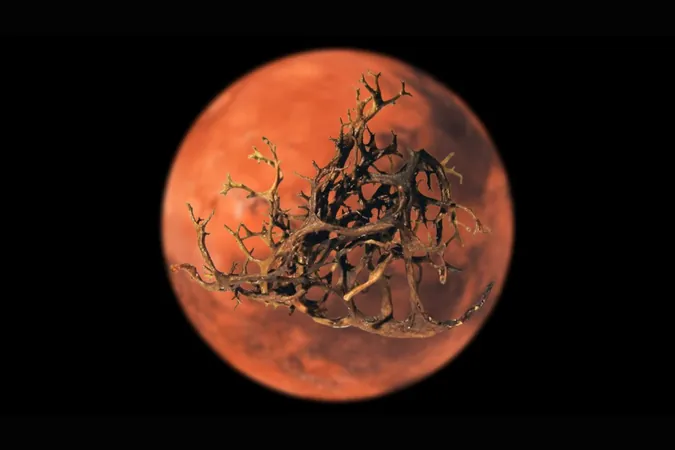
Could Lichens Be the Key to Life on Mars? Latest Study Reveals Surprising Findings!
2025-04-03
Author: Ming
Introduction
In a groundbreaking revelation, researchers from Poland have thrown a new light on the possibility of extraterrestrial life, suggesting that certain lichen species may thrive in the harsh conditions of Mars. Traditionally, planetary scientists have deemed the Red Planet's environment as uninhabitable for life as we know it, but recent findings indicate that we might have underestimated the resilience of these remarkable organisms.
Study Overview
A study published in the journal IMA Fungus has showcased the extraordinary capabilities of two lichen species: Diploschistes muscorum and Cetraria aculeata. These organisms, formed through symbiosis between fungi and algae or cyanobacteria, exhibit impressive survival traits in extreme conditions—from frigid tundras to arid deserts. The researchers meticulously simulated Mars-like atmospheric conditions, including pressure variations and temperature fluctuations, over a five-hour period. They even replicated extreme X-ray radiation levels akin to what Mars could face during intense solar activity.
Key Findings
The results were astounding! Diploschistes muscorum demonstrated a much higher resilience than Cetraria aculeata, with its fungal component maintaining metabolic activity throughout the experiment. “Our study is the first to show that the metabolism of the fungal partner in lichen symbiosis remained alive and active in a Mars-like environment,” announced Kaja Skubała, lead author and biologist from Jagiellonian University. This finding reveals how well D. muscorum could adapt, triggering essential defense mechanisms to counteract the simulated harsh Martian conditions.
Implications of the Research
This research challenges long-held beliefs regarding the detrimental effects of ionizing radiation on potential life forms. Skubała explained, “Our findings deepen our understanding of how organisms with sufficient water content react under such July conditions, highlighting the critical factors for survival on Mars.” The implications are profound—if lichens can endure here, could they pave the way for future life forms to colonize extraterrestrial worlds?
Future Exploration
While NASA may not be planning to send lichens to Mars anytime soon, the study's revelations prompt us to rethink the prospects of life beyond our planet. As space exploration continues to advance, perhaps one day we will uncover more secrets about the potential for life in locations previously deemed inhospitable. Could lichens lead us to discover life on Mars? The adventure has just begun!

 Brasil (PT)
Brasil (PT)
 Canada (EN)
Canada (EN)
 Chile (ES)
Chile (ES)
 Česko (CS)
Česko (CS)
 대한민국 (KO)
대한민국 (KO)
 España (ES)
España (ES)
 France (FR)
France (FR)
 Hong Kong (EN)
Hong Kong (EN)
 Italia (IT)
Italia (IT)
 日本 (JA)
日本 (JA)
 Magyarország (HU)
Magyarország (HU)
 Norge (NO)
Norge (NO)
 Polska (PL)
Polska (PL)
 Schweiz (DE)
Schweiz (DE)
 Singapore (EN)
Singapore (EN)
 Sverige (SV)
Sverige (SV)
 Suomi (FI)
Suomi (FI)
 Türkiye (TR)
Türkiye (TR)
 الإمارات العربية المتحدة (AR)
الإمارات العربية المتحدة (AR)